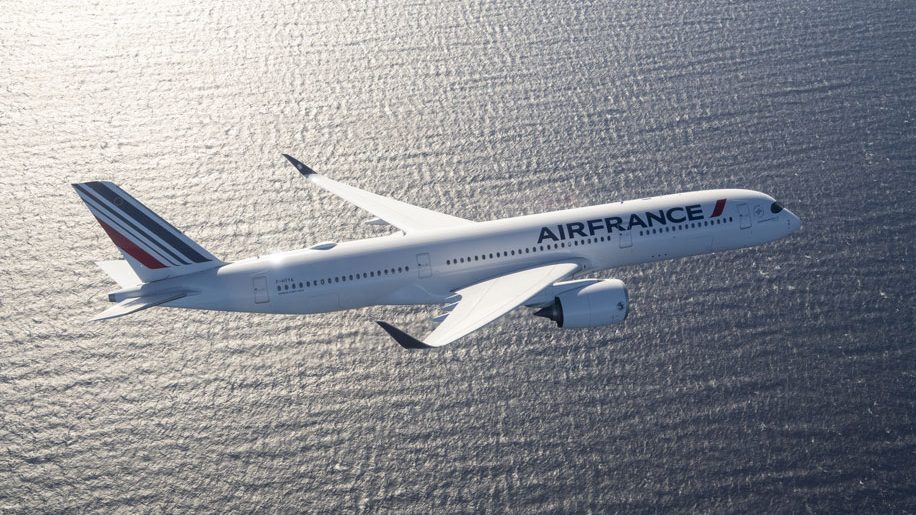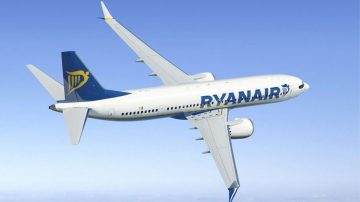
Air France-KLM has carried out its first long-haul flight powered by Sustainable Aviation Fuel (SAF) produced in France. Flight AF342 took off from Paris-Charles de Gaulle airport’s Terminal 2E for Montreal with 16 per cent of its tanks filled for the first time with sustainable aviation fuel produced in Total’s French plants.
The biofuel used for this flight was made from waste and residue sourced from the circular economy. Total produced the SAF from used cooking oil at its La Mède bio-refinery in southern France and at its Oudalle factory near Le Havre, without using any virgin plant-based oil.
This first 100 per cent French SAF received ISCC-EU certification from the International Sustainability and Carbon Certification System, an independent organization that guarantees sustainability. The companies say that the 16 per cent blend on this flight lessened its CO2 emissions by 20 tons.
French legislation calls for aircraft to use at least one per cent SAF by 2022 for all flights originating in France, ahead of the European ambition scheduled to gradually ramp up to 2 per cent by 2025 and 5 per cent by 2030, as part of the European Green Deal. No modifications to storage and distribution infrastructure, aircraft or engines are required to incorporate biofuels.
✈️⛽♻️ Sustainable Air Fuel (SAF) is a concrete way forward to reduce the carbon footprint of air transportation. By teaming up with major players in the sector, we can accelerate its development together! pic.twitter.com/msuwMwLxWc
— Total (@Total) May 18, 2021
The Airbus A350 used for the flight is already a fuel efficient aircraft, which consumes 25 per cent less fuel than its predecessor. The aircraft was also serviced by the first 100 per cent pure-electric refueling truck, “developed in France with Total expertise, and all of the ground support equipment used by Air France was fully electric powered”.
KLM made its first SAF-powered flight in 2009, and between 2014 and 2016, Air France-KLM carried out 78 Air France flights powered by a 10 per cent SAF blend in collaboration with a Total affiliate.
For its part, Airbus is conducting several series of tests to certify airliners to fly with 100 per cent SAF in the coming decades. Airbus has also installed SAF refuelling stations at its industrial facilities so it can be used in production operations, as well as for aircraft deliveries. These installations contribute to Airbus’s ambition to decarbonize all of its industrial operations.
“Sustainable fuels are a major lever for achieving our objectives of decarbonising the aviation sector, and Airbus supports all initiatives that contribute to their development and use on commercial flights.” said Guillaume Faury, CEO of Airbus. “Coordinated action by all stakeholders is needed to increase the share of these sustainable fuels, which can be used today on up to 50% of our aircrafts, without any modification or operational impact, thereby reducing their environmental footprint.”
For this first flight, Benjamin Smith, CEO of Air France-KLM, stated: “For many years, the Air France-KLM Group has been committed to reducing its environmental footprint. Together with the renewal of our fleet, sustainable aviation fuels constitute our main lever in the medium-term for reducing our CO2 emissions per passenger/km by half by 2030. These two actions are therefore central to our strategy, alongside eco-piloting and achieving carbon-neutral ground operations. France currently has the opportunity to position itself as a leader in the production and use of sustainable fuels and we are doing everything possible to contribute to this with our partners. Supporting the emergence of an economically viable French aviation biofuel sector for all the parties involved is a strategic priority for the country and the group.”
Patrick Pouyanné, Chairman and Chief Executive Officer of Total, said: “The development of biofuels is part of Total’s broad-energy strategy for decarbonising the transportation industry. After successfully launching production of sustainable aviation fuels at our facilities in France last March, we are continuing to adapt our industrial facilities to prepare for the growing demand from the aviation industry in the coming decade. By directly reducing the carbon intensity of the energy products used by our aviation industry customers, we are actively working with them to achieve our ambition to get to net zero by 2050, together with society.”
Augustin de Romanet, Chairman and CEO of Groupe ADP, said: “This first flight from Paris-Charles de Gaulle airport is a symbol of our ambition to decarbonise air transport by integrating new sustainable air fuels into aircraft. The European air transport roadmap aims for zero net emissions by 2050, and we are keen, as an airport operator, to support this energy transition and to embark, without delay, on the path of transforming our operation process and infrastructure.”












